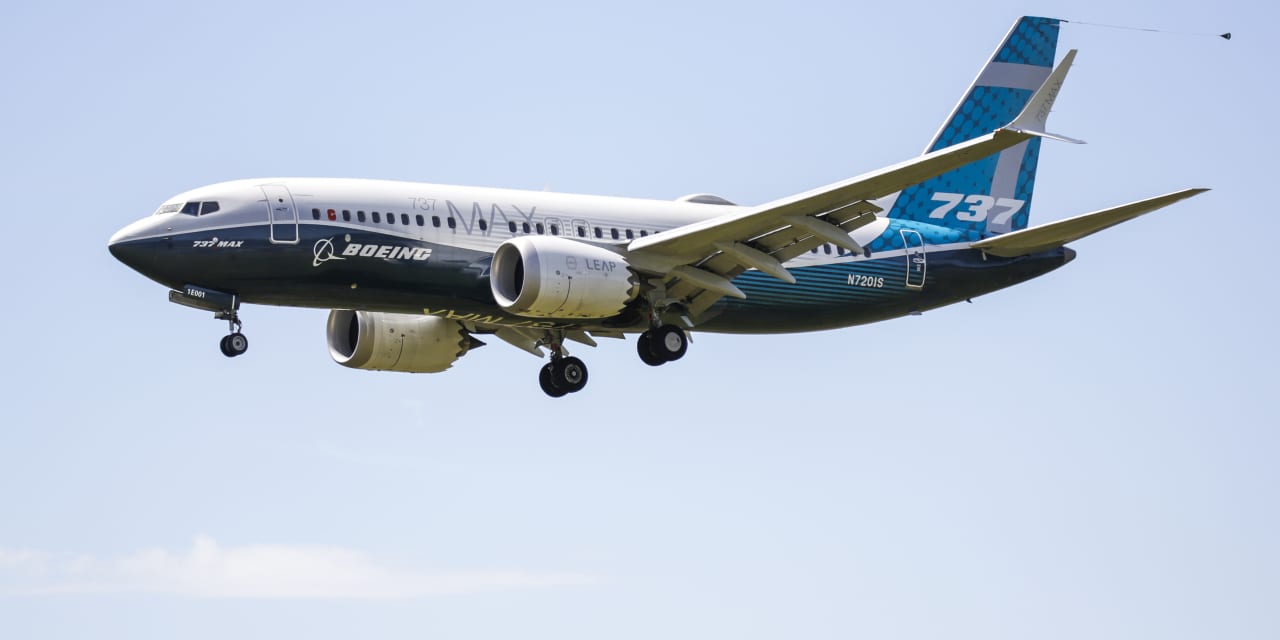The European aviation regulators have followed orders by the Federal Aviation Administration for the temporary grounding of many
Boeing
737 MAX 9 aircraft, after a MAX 9 operated by
Alaska Air
lost a section of its fuselage in midair on Friday.
The damaged plane was able to return to the Portland, Ore., airport, where the flight originated, and no one onboard was injured.
The FAA is going to ensure all MAX 9 jets will be inspected before returning to service. On Sunday, the European Union Aviation Safety Regulator, or EASA, did the same thing. Its action tells investors a little bit more about the plane impacted by the grounding and where it operates.
The EASA “has adopted an Emergency Airworthiness Directive (EAD) issued by the Federal Aviation Administration (FAA) for a specific configuration of the
Boeing
737-9 (MAX),” read part of the news release.
The action, however, impacts no planes. EU aircraft operators have no MAX-9 jets in their fleets, and the EASA added that other versions of the MAX can continue to operate.
Boeing and
Airbus
offer slightly different versions of the same planes to accommodate customer needs. All the planes in a family are certified by aviation authorities. The MAX 8 jet is the most widely used version of the 737 MAX.
“In the specific set-up covered by the EAD, a mid-cabin exit is replaced by a plug-in panel,” read part of the EASA notice. “This [MAX-9] configuration is typically adopted by airlines flying lower-density operations (with lower passenger capacity) where this additional exit isn’t required to meet evacuation safety requirements.”
Most of the 737 MAX jets in operation simply don’t have the panel that failed on the
Alaska Air
jet.
The FAA grounding affects 171 planes. Jefferies analyst Sheila Kahyaoglu wrote Saturday that the MAX 9 accounted for about 20% of 2023 MAX deliveries, but only accounts for about 2% of the MAX backlog. She estimates there are about 220 in service around the world and noted that Alaska Air has completed about one-quarter of its inspections with “no concerning findings.”
Boeing has delivered almost 1,400 MAX jets to date and has some 4,000 MAX jets in its delivery backlog.
Boeing shareholders should brace for some stock volatility on Monday morning. MAX issues weigh heavily on investor sentiment. The 737 MAX jet was grounded worldwide between March 2019 and November 2020 following two deadly crashes within five months. Those crashes were blamed on flight-control software known as the Maneuvering Characteristics Augmentation System, or MCAS.
Both crashes, Lion Air Flight 610 and Ethiopian Airlines Flight 302, involved MAX 8 jets.
At a recent $249 a share, Boeing stock is still down roughly 44% from its record high of about $446, which it reached in March 2019 before the MAX grounding.
Boeing stock enters Monday trading up about 17% over the past 12 months, while shares of rival
Airbus
are up about 20%. The
Nasdaq Composite
and
S&P 500
are up about 37% and 21%, respectively.
Write to Al Root at [email protected]
Read the full article here




